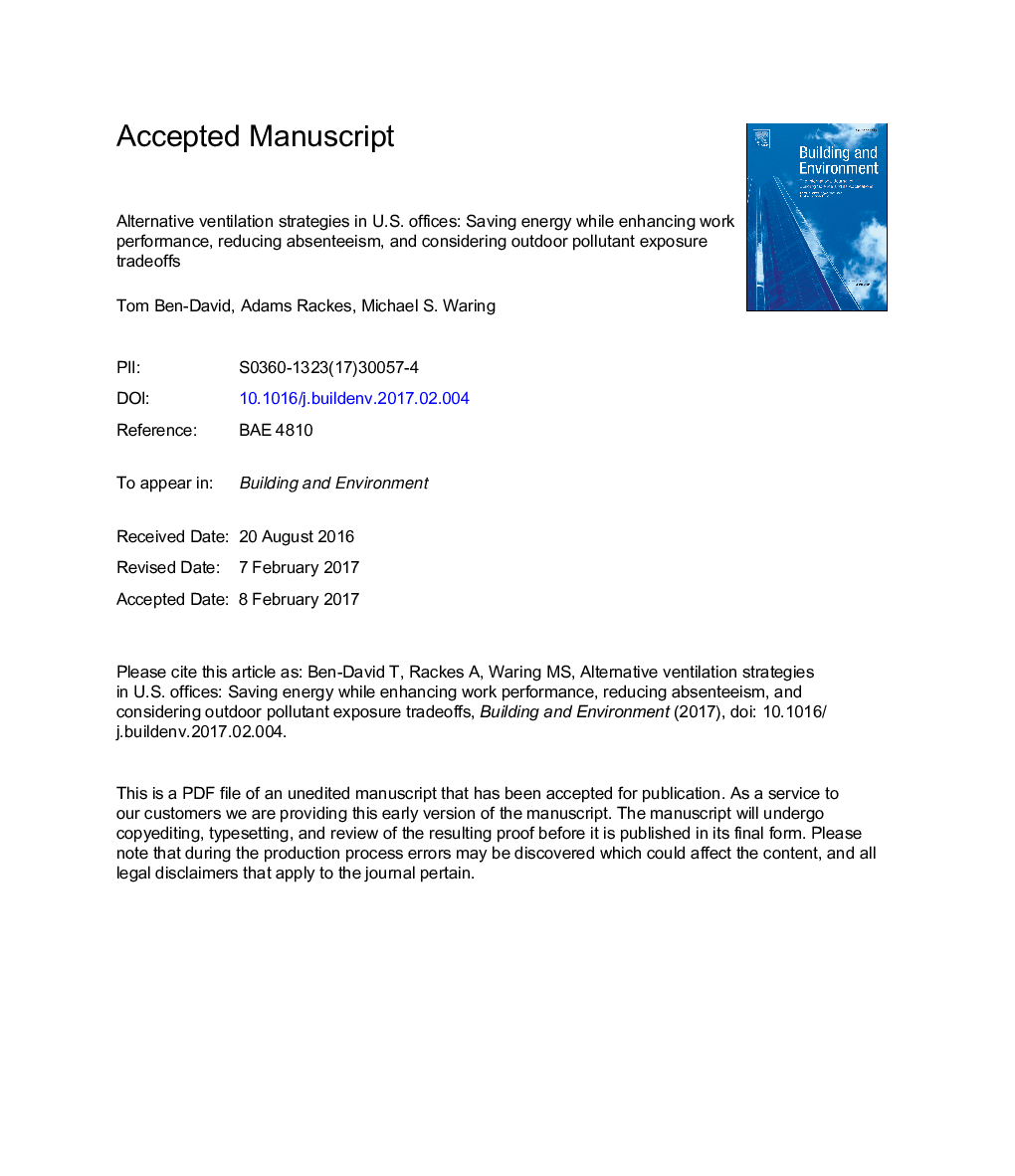| Article ID | Journal | Published Year | Pages | File Type |
|---|---|---|---|---|
| 4917385 | Building and Environment | 2017 | 52 Pages |
Abstract
Mechanical ventilation can improve occupant productivity, use or save energy, and increase outdoor-to-indoor pollutant transport. This work explores those impacts for eight ventilation strategies, relative to a baseline constant mechanical ventilation rate (VR) of 9.4 L/s/occ, in two representative offices. Strategies were unique combinations of airside economizing, demand-controlled ventilation, and supply air temperature reset, along with doubling the baseline VR. These were evaluated within a Monte Carlo analysis that varied climate and outdoor pollution, along with 19 building parameters. Energy modeling, empirical correlations, and indoor air quality (IAQ) modeling were used to quantify outcomes of: (i) energy use; (ii) profitable IAQ impacts, e.g. work performance; and (iii) negative IAQ health impacts due to indoor particle and ozone exposure. 'Win-win' strategies were defined as those that saved energy and increased work performance, and these always included an economizer. Relative to the baseline, the win-win strategies: increased annual geometric mean VRs by 5-10 L/s/occ; reduced mechanical system energy consumption by 12-27% (saving $1-1.75/m2/year); increased work performance by 0.5%; eliminated 5 h of absenteeism per year; and increased indoor PM2.5 by 0.5 μg/m3 and ozone by 3 ppb. A sensitivity analysis identified infiltration and climate as the largest outcome drivers. Median annual benefits for small-to-medium-large offices in the U.S. (â¼75% of office floorspace) were $28 billion for implementing the win-win strategy with the greatest energy savings, and $55 billion for implementing the win-win strategy with the greatest work performance increase. Particle exposure tradeoffs were mitigated by use of efficient filters.
Keywords
Related Topics
Physical Sciences and Engineering
Energy
Renewable Energy, Sustainability and the Environment
Authors
Tom Ben-David, Adams Rackes, Michael S. Waring,
